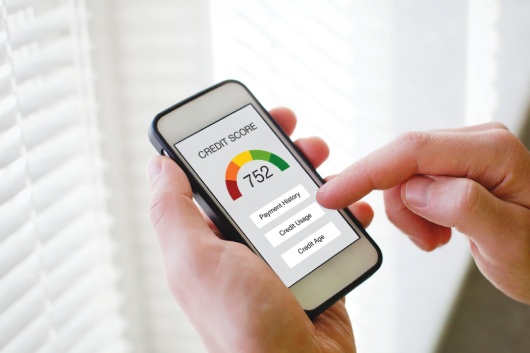December 06, 2024
Why Debt Consolidation Could Be Your Financial Lifesaver in the RGV
In the bustling Rio Grande Valley (RGV), where financial stability can sometimes feel like an elusive dream, debt consolidation loans offer hope.
With the cost of living on the rise and financial obligations mounting, many individuals and families are seeking ways to manage their debts more effectively. This is where debt consolidation loans can serve as a lifesaving, finance-saving option for handling multiple debts and even getting out of debt.
In this guide, we will explore the benefits of debt consolidation, compare it with balance transfers, discuss how to qualify, its impact on credit scores, and the importance of a solid debt repayment plan.
Benefits of Debt Consolidation
Debt consolidation means merging multiple debts into a single loan, ideally with a lower interest rate. The result is often a lower monthly payment than trying to pay multiple debts at high interest rates. Here are some of the key benefits:
One Payment Per Month
Instead of juggling multiple due dates and varying interest rates, you make one monthly payment. This simplicity can reduce the stress and confusion that often accompanies managing multiple debts.
Lower Interest Rates
One of the most appealing aspects of debt consolidation loans is the potential for a lower interest rate. By consolidating your debts, you could save money over time by reducing the amount of interest you pay.
Improved Credit Score
By paying off your existing debts with a consolidation loan, you can reduce your credit utilization ratio, which may positively impact your credit score over time.
Budget Management
With a fixed payment plan, it becomes easier to budget monthly expenses, leading to better financial management and potentially freeing up funds for savings or other needs.
Debt Consolidation vs. Balance Transfer

Debt Consolidation Loans are personal loans that pay off multiple debts. They usually have fixed interest rates and payment terms, providing a predictable repayment schedule.
Balance Transfers involve moving debt from one or more credit cards to a new card, often with an introductory 0% APR period. This can be beneficial if you can pay off the balance before the introductory period ends, but it may lead to higher rates afterward.
Debt consolidation loans are generally more suitable for those who need longer repayment terms and have a mix of debt types beyond credit cards, while balance transfers are best for short-term credit card debt solutions.
Qualifying for a Debt Consolidation Loan
To qualify for a debt consolidation loan, you typically need to meet certain criteria:
Suitable Credit Score
Lenders often require a fair to good credit score. While each lender has its own requirements, a score of 650 or higher is generally considered favorable.
Income
Proof of stable income is crucial. Lenders want to make sure you can meet your monthly payments.
Debt-to-Income Ratio
This ratio compares your monthly debt payments to your monthly income. A lower ratio indicates better financial health and increases your chances of qualifying.
Example of Calculating Debt-to-Income Ratio
Let’s say you have the following monthly debts:
- Mortgage Payment: $1,200
- Car Loan Payment: $300
- Credit Card Payments: $200
- Student Loan Payment: $150
Total monthly debt payments = $1,200 (mortgage) + $300 (car loan) + $200 (credit cards) + $150 (student loans) = $1,850
Now, assume your gross monthly income is:
$5,000
To calculate your DTI ratio:
Total Monthly Debt Payments: $1,850
Gross Monthly Income: $5,000
Divide the Total Monthly Debt Payments by your Gross Monthly Income:
1,850 ÷ 5,000 = 0.37, meaning your debt-to-income ratio is 37%
Collateral
Some loans may require collateral, such as a vehicle or home equity, which can lower the interest rate but also increase risk.
Impact on Credit Scores

Credit Inquiry
Applying for a new loan typically results in a hard inquiry, which can temporarily lower your score by a few points.
Credit Utilization
Paying off credit card balances with a consolidation loan reduces your credit utilization ratio, potentially boosting your score.
Payment History
Consistently making payments on your consolidation loan can improve your credit history, a key factor in your overall credit score.
The long-term impact is usually positive if the debt consolidation leads to better debt management and consistent payments.
Creating a Debt Repayment Plan

Assess your debts
List all your debts, including balances, interest rates, and monthly payments. Understanding your current situation is the first step toward improvement.
Set a budget
Create a realistic budget that accounts for your income and expenses. Identify areas where you can cut back to increase your debt repayment capacity.
Prioritize debts
Focus on high-interest debts first to minimize the total interest paid. Use the snowball or avalanche method to systematically tackle your debts.
Monitor progress
Regularly review your progress to make sure you are on track. Adjust your plan as needed based on changes in your financial situation.
Seek professional guidance
Financial advisors or credit counselors can offer valuable insights and help you stay disciplined in your repayment journey.
Debt consolidation can be a powerful tool in your financial strategy, but it requires commitment and careful planning. At Greater State Bank, we are dedicated to supporting the RGV community with personalized financial solutions, including debt consolidation loans tailored to your unique needs. For more information and personalized assistance, visit Greater State Bank today and let us help you achieve your financial goals.




